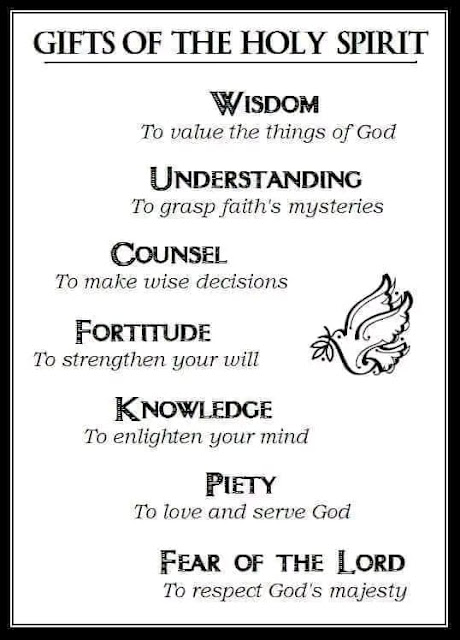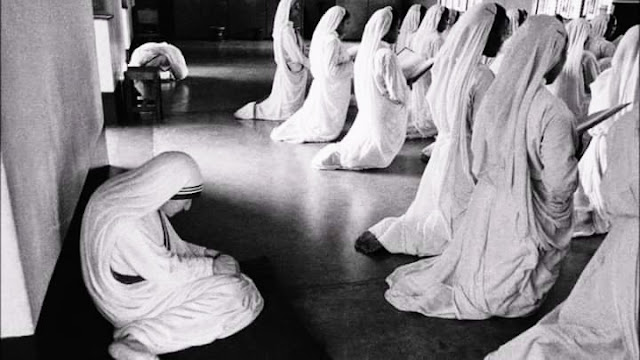EXAMINATION OF CONSCIENCE
WITH THE TEN COMMANDMENTS OF GOD AND THE PRECEPTS OF THE CHURCH.
FIRST COMMANDMENT: I AM THE LORD THY GOD; THOU SHALT NOT HAVE STRANGE GODS BEFORE ME.
Sins contrary to the First Commandment are the following: neglect of prayer; ingratitude toward God; spiritual sloth; hatred of God or of the Catholic Church; tempting God (explicitly or implicitly, e.g. by exposing one’s self to danger ofsoul, life, or health without grave cause); not behaving reverently when in church (e.g. not genuflecting to the Blessed Sacrament when entering or leaving the church, etc.); excessive attraction to things/creatures (e.g. over-affection to animals, sports fanatic, having movie star /music/TV idols, love for money, pleasure or power); idolatry (worshiping false gods such as giving honor to a creature in place of God (e.g. Satan, science, ancestors, country); superstition (ascribing powers to a created thing which it does not have); hypnotism (without sufficient cause); divination (communication with Satan, demons, the dead or other false practices in order to discover the unknown, consulting horoscopes, astrology, palm reading, fortune telling); attaching undue importance to dreams, omens or lots; all practices of magic or sorcery (e.g. witchcraft, voodoo); wearing charms; playing with Ouija boards or rotating tables; spiritism (talking with the spirits); sacrilege (profaning or treating unworthily the Sacraments, especially the Holy Eucharist, and other liturgical actions, as well as religious persons, blessed things such as sacred vessels or statues, or places consecrated to God); sacrilege by receiving a sacrament, especially the Holy Eucharist, in the state of mortal sin; simony (buying or selling of spiritual things); profane or superstitious use of blessed objects (sometimes done in order to remain in sin); practical materialism (one believes he needs and desires only material things); atheistic humanism (falsely considers man to be an end in himself, and the sole maker with supreme control of his own history); atheism in general (rejects, denies or doubts the existence of God, either in theory or practice, i.e. ignoring Him in the daily living of our lives); agnosticism (postulates the existence 2 of a transcendent being which is incapable of revealing itself, and about which nothing can be said or makes no judgment about God’s existence declaring it impossible to prove or even to affirm or deny).Sins against Faith: Wilful doubt of any article of faith; deliberate ignorance of the truths of faith which ought to be known; neglect of instructing oneself in the faith according to one’s state in life; rash credulity (e.g. giving credence to private revelation too easily or believing in a private revelations which has been condemned by the lawful Church authorities); apostasy; heresy; indifferentism (to believe that one religion is as good as another, and that all religions are equally true and pleasing to God, or that one is free to accept or reject any or all religions); reading or circulating books or writings against the Catholic belief or practice in such wise as to jeopardize one’s faith; to remain silent when asked about one’s faith; engaging is schismatic or heretical worship; joining or supporting masonic groups or other forbidden societies.
Sins against Hope: despair of God’s mercy (to give up all hope of salvation, and the means necessary to be saved) or want of confidence in the power of His Grace to support us in trouble or temptation; no desire to possess eternal happiness in heaven or after this earthly life; presumption (to hope for salvation without help from God or to assume God’s forgiveness without conversion, or to hope to obtain heavenly glory without merit); presuming on God’s mercy or on the supposed efficacy of certain pious practices, in order to continue in sin; refusing any dependence on God.
Sins against Charity: not making an act of charity at regular intervals during life especially during times of necessity; egoism (one cares only about himself, praises himself, selfish, enjoys receiving praise) wilfully rebellious thoughts against God; boasting of sin; violatingGod’s law, or omitting good works through human respect.



























